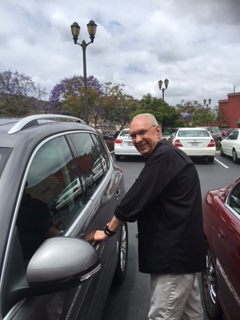Valentine’s Day is fast approaching. It’s a fun time for those who are in loving, committed relationships, offering ample ways to say “I Love You.” Cards, flowers, chocolates and special dinners for two tend to be the standard expressions of love, and there are countless others.
 For those who do not have a significant other, Valentine’s Day can be depressing. The day magnifies the fact that they are not paired up with someone, romantically-speaking. While there are plenty for whom this is not a problem, just as many, if not more, long for a relationship that could run the gamut from simple companionship to marriage. The process of finding just the right person is daunting for many, even exhausting, but today, thousands of “availables” are finding other “availables” using online dating services.
For those who do not have a significant other, Valentine’s Day can be depressing. The day magnifies the fact that they are not paired up with someone, romantically-speaking. While there are plenty for whom this is not a problem, just as many, if not more, long for a relationship that could run the gamut from simple companionship to marriage. The process of finding just the right person is daunting for many, even exhausting, but today, thousands of “availables” are finding other “availables” using online dating services. According to a study released in 2013 by the Pew Research Center, the majority of Americans now say that online dating is a good way to meet people. Nearly 11% of adults have used online dating services or mobile dating apps. The study claims that 1 in 5 people ages 25-34 have used online dating, and the method is growing in popularity among older adults as well—8% of adults ages 45-54 are turning to the Internet to meet people, and 6% ages 55-64 are doing the same.
Naturally, the commercials for these sites share the happy endings, and there are many, but in their quest for love, online daters should keep some of the pitfalls in mind to avoid having their hearts, and their bank accounts, broken.
Unfortunately, there are scammers out there who are looking for money, not love, as they create their profiles and troll for vulnerable people. They create fake profiles to build online relationships, and eventually convince people to send money in the name of love. Some even make wedding plans before disappearing with the money.
An online love interest who asks for money is a scam artist. Be particularly careful, when corresponding with an out-of-town interest. Requests for money due to medical emergency, travel costs, hospital bills for a child or parent or to cover financial setbacks are a red flag.
Most online dating sites provide additional guidelines to keep users safe, including:
- Stop contact with a potential love interest who wants to leave the site early on and immediately continue the conversations through email.
- Be wary of people using words like destiny and fate in conversations, especially before you’ve even met.
- Share your online dating process with a friend or family member you trust, so you can run things by an objective party.
- Never share your address, even if the request is under the guise of wanting to send you gifts or flowers.
- Do not share your telephone number or Social Security number.
- Think carefully before engaging further with someone who has to quickly halt conversations, or, if speaking on the phone, speaks in hushed tones.
If these red flags arise, honest daters can protect themselves by running a background check, but do keep in mind that these checks are not foolproof.
In short, know that online dating sites can be a useful tool for finding companionship, but proceed with caution and don’t get swept away without taking steps to protect yourself. It’s not worth the headache or the heartache.







Leave A Comment
You must be logged in to post a comment.